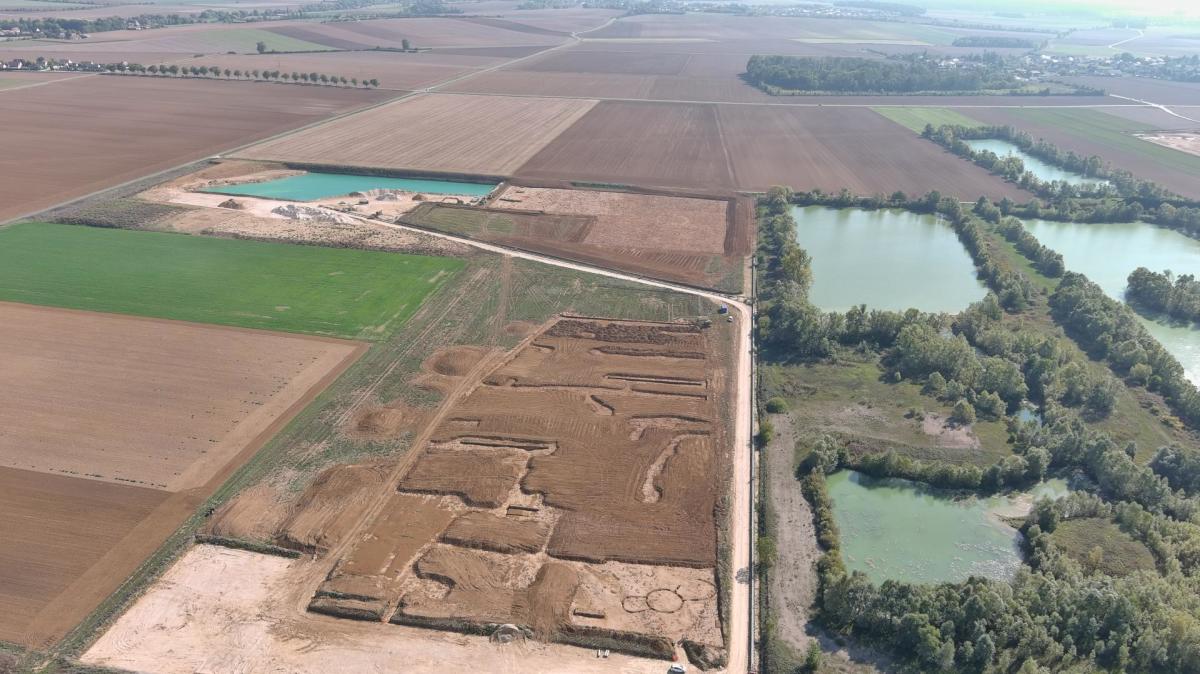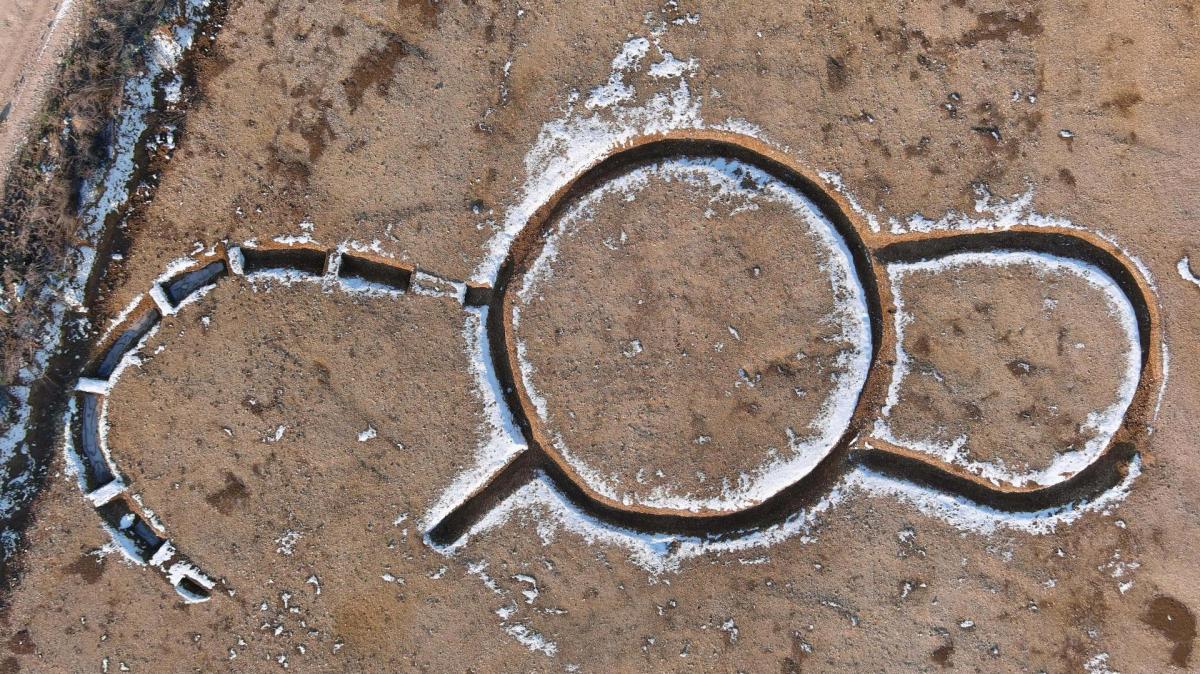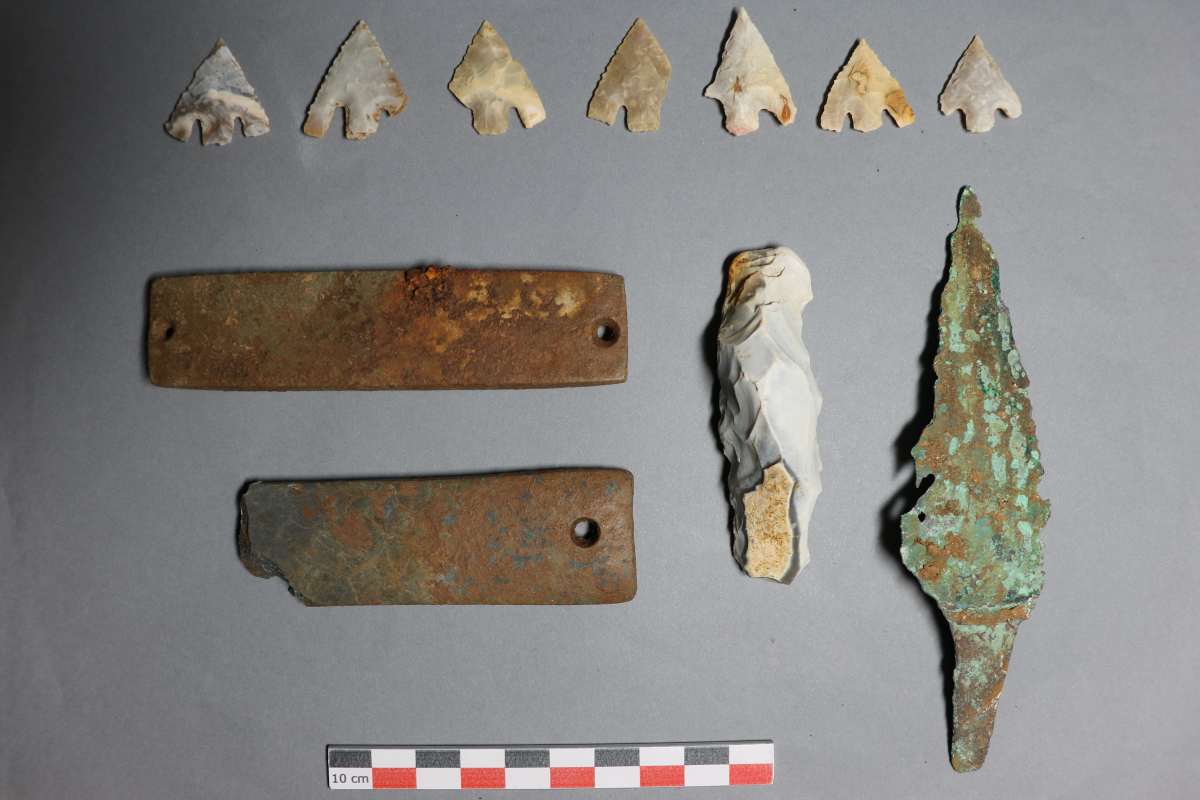Archaeologists in France have uncovered a preserved settlement while investigating an area ahead of it being turned into a gravel pit. A horseshoe-shaped enclosure serves as the center of a number of settlements, burial grounds, and other structures stretching across 15 acres in Marliens.
The interlocking structures appear to make up a monument. Institut National de Recherches Archéologiques Préventives (INRAP) reported (via Ancient Origins) that a layer of gravel found indicates that there was once a stake fence on the property. The outlet noted that “this type of monument [is] unprecedented.”

Pauline Rostollan/INRAP

Pauline Rostollan/INRAP
Though the date of its construction has yet to be determined, experts posit it dates back to the Neolithic period, roughly 7,000 to 1,700 B.C.E. This is backed up by the presence of several other objects on the land, such as daggers and arrowheads.
A bundle of objects discovered under topsoil included seven flint arrowheads, two archer's armbands, a flint lighter, and a dagger made of copper alloy.
Found on several of the armbands were traces of iron oxide which corresponded to pyrite, an essential material for starting fires during the Neolithic period. While experts confirmed that this combination of objects is usually present at a burial ceremony, their specific purpose hasn’t been determined.

Pauline Rostollan/INRAP
This is just the latest in a succession of major archaeological discoveries in 2024.
A “richly decorated Roman villa” was recently discovered at a site in England, while a sunken harbor town was uncovered at the bottom of the Black Sea. The latter discovery mirrors a similarly remarkable find made last month in the Mediterranean.
At the historical site of Pompeii, archaeologists recently located a 2,000-year-old, nearly intact fresco, in addition to well-preserved mythological paintings in a luxurious banquet hall.
from Men's Journal https://ift.tt/P68XE9F
No comments:
Post a Comment